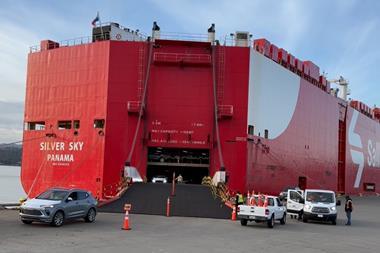Create your FREE Automotive Logistics Account
By creating your account you will be able to stay up-to-date with the latest industry developments, trends and analysis, read in-depth reports and intelligence, and connect with your peers.
Creating an account gives you:
- Detailed analysis and the latest news from leading global vehicle makers, tier suppliers and logistics providers
- A weekly update on developments from your chosen sector
- A website homepage that is customised to the stories you want
- Regular updates on our new suite of digital products
- Early access to reports from our global portfolio of events





































